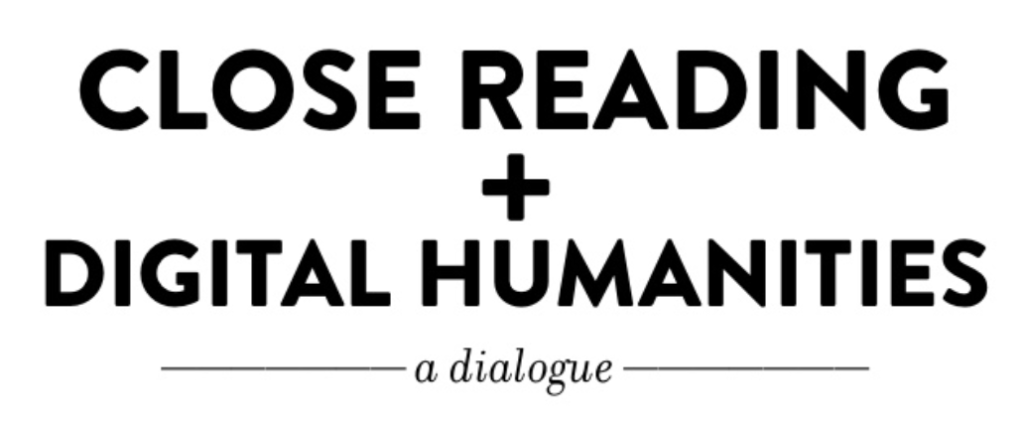20 April, 2-5pm
Erik Ketzan
Digital practices in literary studies have been at the forefront of recent debates about what it means to ‘read’ at scale. Meanwhile, conventional literary studies has followed the modernist paradigm of ‘close reading’, insisting on close textual attention.
On April 20, 2-5pm, Birkbeck School of Arts will host an afternoon event, Close Reading + Digital Humanities: A Dialogue. Space is limited — please register to attend.
This afternoon brings together scholars of close reading and digital humanities to investigate how one can inform the other, chart common goals and navigate potential tensions and anxieties. By discussing the tradition of close reading in literary studies alongside emerging digital approaches to text — such as corpus-based analysis (analysis based on electronic collections of text), detecting text re-use (automatic detection of text that appears in two texts, or multiple times within one text), semantic analysis (automatic classification of the meaning of words), automatic collation (comparison of texts, for instance variants of fiction) — we hope to identify new research topics and find new ways to tackle old problems.
Each speaker will present for 25 minutes with Q+A, followed by a panel discussion.
Professor Martin Paul Eve
Professor of Literature, Technology and Publishing
Birkbeck, University of London
Erik Ketzan
PhD Candidate: Digital Humanities
Birkbeck, University of London
Dr. Richard Robinson
Associate Professor, English Literature & Creative Writing
Swansea University
Dr. Gabriele Salciute Civiliene
Teaching Fellow in Digital Humanities Technologies,
Department of Digital Humanities
King’s College London

